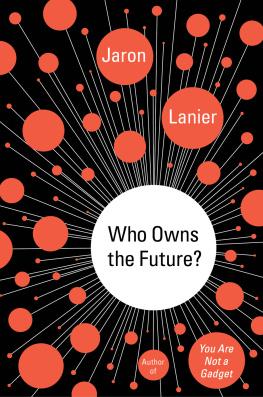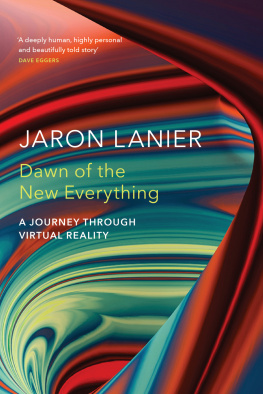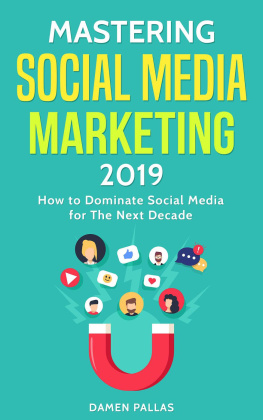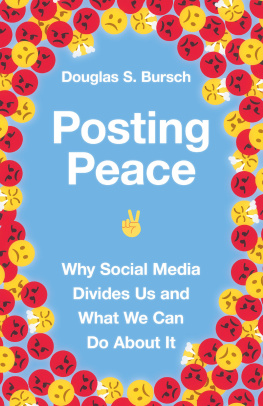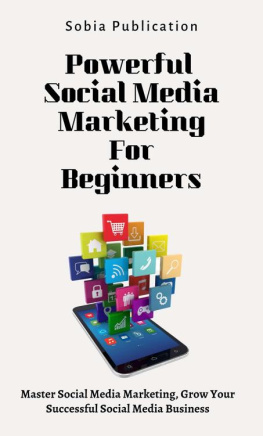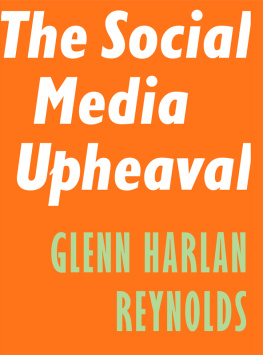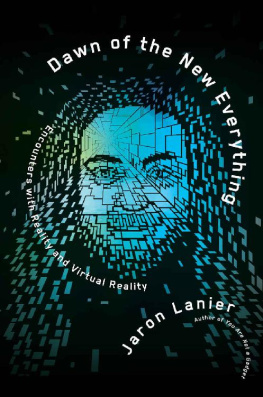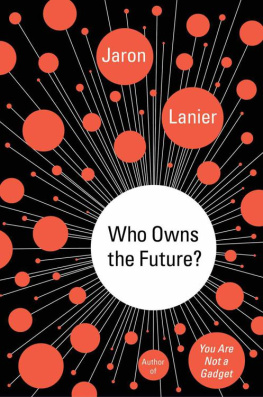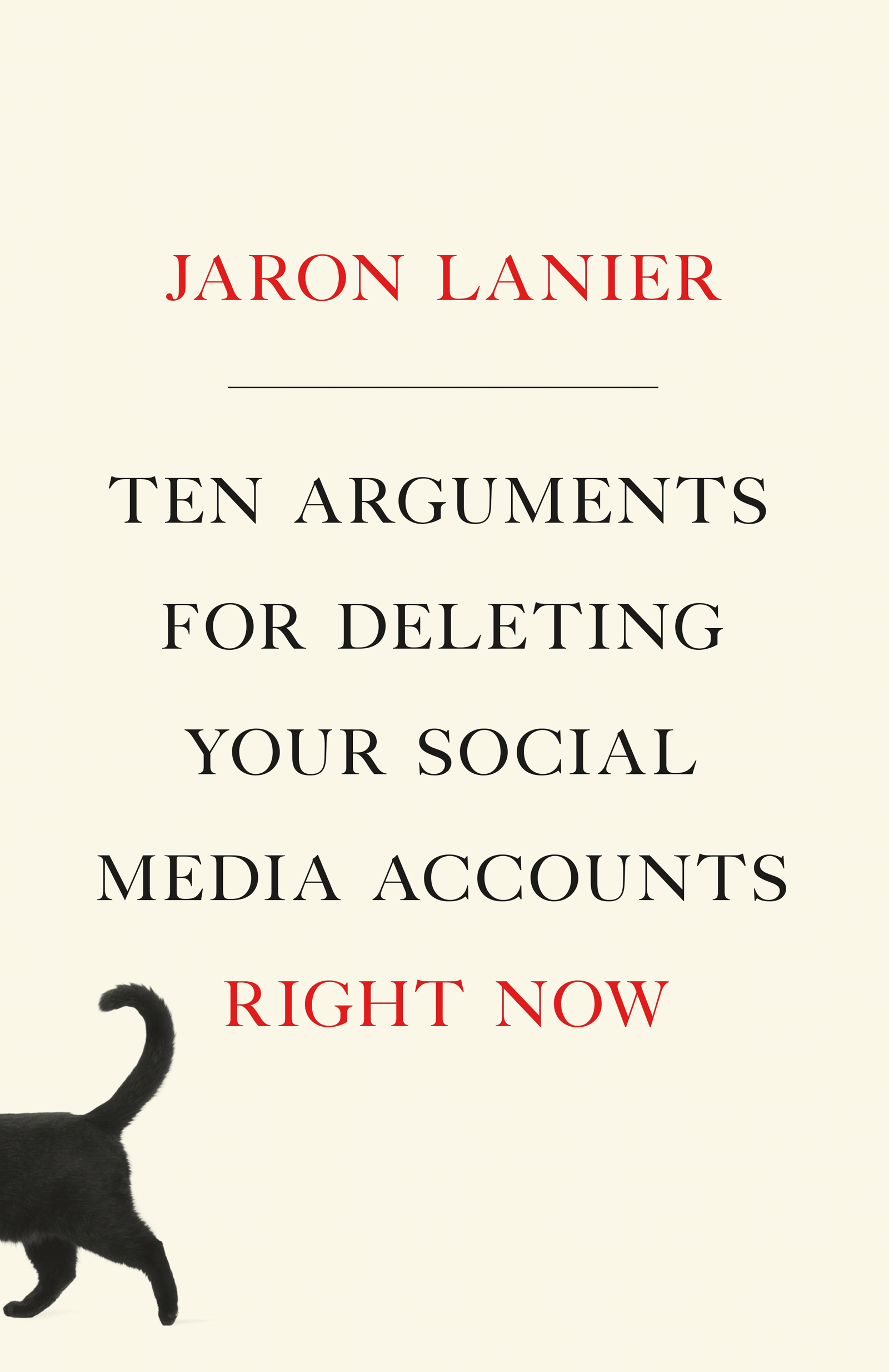Contents
Guide
Pagebreaks of the print version

The author and publisher have provided this e-book to you for your personal use only. You may not make this e-book publicly available in any way. Copyright infringement is against the law. If you believe the copy of this e-book you are reading infringes on the authors copyright, please notify the publisher at: us.macmillanusa.com/piracy.
Lets start with cats.
Cats are everywhere online. They make the memiest memes and the cutest videos.
Why cats more than dogs?
Dogs didnt come to ancient humans begging to live with us; we domesticated them. Its great that theyre loyal and dependable.
Cats are different. They came along and partly domesticated themselves. They are not predictable. Popular dog videos tend to show off training, while the most wildly popular cat videos are the ones that capture weird and surprising behaviors.
Cats are smart, but not a great choice if you want an animal that takes to training reliably. Watch a cat circus online, and whats so touching is that the cats are clearly making their own minds up about whether to do a trick theyve learned, or to do nothing, or to wander into the audience.
Cats have done the seemingly impossible: Theyve integrated themselves into the modern high-tech world without giving themselves up. They are still in charge. There is no worry that some stealthy meme crafted by algorithms and paid for by a creepy, hidden oligarch has taken over your cat. No one has taken over your cat; not you, not anyone.
Oh, how we long to have that certainty not just about our cats, but about ourselves! Cats on the internet are our hopes and dreams for the future of people on the internet.
Meanwhile, even though we love dogs, we dont want to be dogs, at least in terms of power relationships with people, and were afraid Facebook and the like are turning us into dogs. When we are triggered to do something crappy online, we might call it a response to a dog whistle. Dog whistles can only be heard by dogs. We worry that were falling under stealthy control.
This book is about how to be a cat. How can you remain autonomous in a world where you are under constant surveillance and are constantly prodded by algorithms run by some of the richest corporations in history, which have no way of making money except by being paid to manipulate your behavior? How can you be a cat, despite that?
The title doesnt lie; this book presents ten arguments for deleting all your social media accounts. I hope it helps, but even if you agree with all ten of my arguments, you might still decide to keep some of your accounts. Thats part of your prerogative, being a cat.
As I present the ten arguments, Ill discuss some of the ways you might think about your situation to decide whats best for you. But only you can know.
AUTHORS NOTE, MARCH 2018:
This book was written primarily during the final months of 2017, but events in 2018 turned out to be explosively relevant. The manuscript was done, done, doneheaded to the printerwhen the sorry revelations of the Cambridge Analytica scandal fueled a sudden, grassroots movement of people deleting Facebook accounts.
Unfortunately, not all public figures and thought leaders handled the moment with the courage that was required. There were pundits who tried to quit but could not. There were others who pointed out that not everyone is privileged enough to quit, so it felt cruel to leave the less fortunate behind. Others said it was irrelevant to quit because the thing that mattered was pressuring governments to regulate Facebook. Overall, the attitude of professional commentators regarding account deleters was smug and dismissive. And dead wrong.
Cmon people! Yes, being able to quit is a privilege; many genuinely cant. But if you have the latitude to quit and dont, you are not supporting the less fortunate; you are only reinforcing the system in which many people are trapped. I am living proof that you can have a public life in media without social media accounts. Those of us with options must explore those options or they will remain only theoretical. Business follows money, so we who have options have power and responsibility. You, you, you have the affirmative responsibility to invent and demonstrate ways to live without the crap that is destroying society. Quitting is the only way, for now, to learn what can replace our grand mistake.
Something entirely new is happening in the world. Just in the last five or ten years, nearly everyone started to carry a little device called a smartphone on their person all the time thats suitable for algorithmic behavior modification. A lot of us are also using related devices called smart speakers on our kitchen counters or in our car dashboards. Were being tracked and measured constantly, and receiving engineered feedback all the time. Were being hypnotized little by little by technicians we cant see, for purposes we dont know. Were all lab animals now.
Algorithms gorge on data about you, every second. What kinds of links do you click on? What videos do you watch all the way through? How quickly are you moving from one thing to the next? Where are you when you do these things? Who are you connecting with in person and online? What facial expressions do you make? How does your skin tone change in different situations? What were you doing just before you decided to buy something or not? Whether to vote or not?
All these measurements and many others have been matched up with similar readings about the lives of multitudes of other people through massive spying. Algorithms correlate what you do with what almost everyone else has done.
The algorithms dont really understand you, but there is power in numbers, especially in large numbers. If a lot of other people who like the foods you like were also more easily put off by pictures of a candidate portrayed in a pink border instead of a blue one, then you probably will be too, and no one needs to know why. Statistics are reliable, but only as idiot demons.
Are you sad, lonely, scared? Happy, confident? Getting your period? Experiencing a peak of class anxiety?
So-called advertisers can seize the moment when you are perfectly primed and then influence you with messages that have worked on other people who share traits and situations with you.
I say so-called because its just not right to call direct manipulation of people advertising. Advertisers used to have a limited chance to make a pitch, and that pitch might have been sneaky or annoying, but it was fleeting. Furthermore, lots of people saw the same TV or print ad; it wasnt adapted to individuals. The biggest difference was that you werent monitored and assessed all the time so that you could be fed dynamically optimized stimuliwhether content or adto engage and alter you.
Now everyone who is on social media is getting individualized, continuously adjusted stimuli, without a break, so long as they use their smartphones. What might once have been called advertising must now be understood as continuous behavior modification on a titanic scale.
Please dont be insulted. Yes, I am suggesting that you might be turning, just a little, into a well-trained dog, or something less pleasant, like a lab rat or a robot. That youre being remote-controlled, just a little, by clients of big corporations. But if Im right, then becoming aware of it might just free you, so give this a chance, okay?


